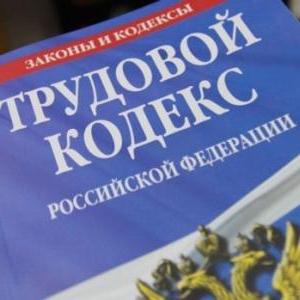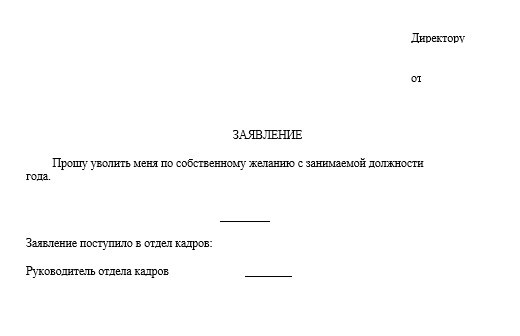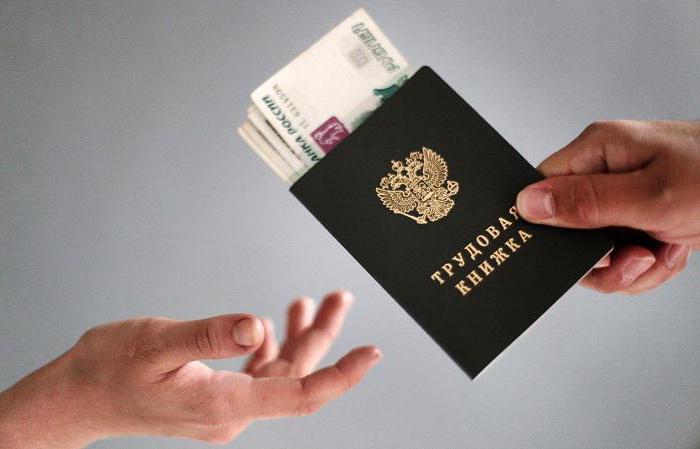Many employees are interested in payments upon dismissal of their own free will. And this is no accident. The thing is that every employer is obliged to make settlements with them when terminating labor relations with his subordinates. Otherwise, the dismissal procedure will be violated. Only occasionally citizens are not entitled to any monetary compensation. Next, we will talk about how to quit properly, as well as about the payments to the employee.
About the right to care
Employment is a process that almost every modern citizen faces. After a person has become part of the company, his rights and freedoms at the workplace are protected by the Labor Code of the Russian Federation.
Under the Labor Law, each employee has the right to dismiss at his own request. Payments under similar circumstances are made by all employers on time. But what can one hope for? And when can a person quit?
About the time of dismissal
The answer is simple. To understand this issue, you need to thoroughly study the Labor Code of the Russian Federation.
Subordinates have the right to terminate the employment contract at any time after its conclusion. There are no restrictions in this area. Pregnant women, people with disabilities, and people sitting on maternity leave can leave work on a personal initiative. This is quite normal. Payments upon dismissal of one's own free will are laid to one degree or another to all employees.
In other words, a citizen can leave work:
- from the decree;
- on sick leave;
- while on vacation;
- on any day of the normal working period;
- during the trial period.
The main thing is to know how to quit. After all, some unscrupulous employers use the ignorance of subordinates, violating their legal rights. To avoid this, we will consider the process of termination of the employment contract from all sides.
The order of dismissal
In order to understand what kind of payments for the dismissal of employees of their own free will, it is important to study the process of leaving work from all angles. Only in this case can a person speak with confidence about a violation of their rights at the place of employment.
Let's start with the order of dismissal. To terminate an employment contract with an employer, you will need:
- Make a statement of the established form.
- Contact your employer. This must be done in advance.
- Wait a while. This period is called mining.
- Sign a letter of resignation.
- Get a calculation sheet, work book and income statement.
- Take the due payments from accounting.
- Sign for documents and cash in accounting journals.
Done! As soon as all these steps are behind, the citizen will be considered dismissed from work. It would seem that there is nothing difficult in this. But in fact, termination of employment has many features. And most of them are associated with payments upon dismissal of their own free will.
How much to warn?
Some employees are interested in how long it takes to report their decision to leave work to their bosses. As we have said, this must be done in advance.
According to the Labor Code of the Russian Federation, a subordinate must notify of the intention to terminate the employment contract no later than 2 weeks before leaving work. But there are exceptions.
For example, upon retirement a citizen may be dismissed on the day the relevant request is submitted. And if a citizen is on a trial period, you need to notify about your decision in 3 days.By remembering these rules, you can avoid unnecessary problems when dismissing on your own initiative.
About mining
After submitting an application for termination of employment, as we have said, the so-called working off follows. It is directly related to payments after dismissal at will.
The thing is that the mining period is paid as usual. That is like full working days. So, before leaving the company, you can earn extra money. The employer has no right to exclude the period of working out from the calculation of compensation.
However, citizens often try to avoid working out. Especially if they want to quit because of a violation of their rights, conflicts with colleagues, or because of usual fatigue. Legislation allows for “exemption” from mining.
How to achieve it? Can:
- take sick leave;
- go on vacation (for example, at your own expense).
After a person uses one of the proposed options, you can begin the procedure for leaving work. In other words, you must first go on vacation, and then apply for termination of employment.
Important: it is forbidden to call for work from vacation or maternity leave. Persons caring for children are always exempted from working.
Compulsory Compensation
Are you planning to dismiss on your own? What payments are relied on in one case or another? Let's start with the required compensation.
These include:
- payment for hours worked;
- compensation for unused vacation days.
In fact, a person receives a salary (taking into account mining) and money for a vacation, which they could pay if a citizen remained in the company. These funds must be provided under any circumstances. The exception is cases in which a person has already used paid vacation.
About vacation compensation
Pay attention to payment for unused vacation days. For what period can I get money? Indeed, in real life there are times when a citizen has been working without rest for several years.
In such a situation, you can demand vacation payments upon dismissal at your own request for the last 2 years of employment. Has a citizen gone on vacation for 3 or even 4 years? This is not so important. After all, you can only claim compensation for the last 24 months of employment. The remaining debt burns out.
As we have said, the payout studied may not take place. For example, if a person has already spent paid vacation days. Or such a situation is possible when an employee rested "on credit".
Severance pay
Did you leave your own free will? What payments are due to subordinates under similar circumstances?
We got acquainted with the main list of paid funds. What's next?
In addition to the compensations mentioned earlier, sometimes people are entitled to severance pay. It is usually paid upon liquidation of an enterprise or as a result of a reduction. If a person leaves, the employer is exempted from compulsory severance pay. But if it is provided for by an employment contract, you can safely claim this money.
By agreement
The due payments upon dismissal of one's own free will do not end there. The employee must carefully study the employment contract. It clearly spells out all the compensation that will be issued upon termination of employment.
Sometimes the agreement indicates a variety of payments. And they will not necessarily be considered severance pay. Unfortunately, special monetary compensations for leaving a job with an employment contract are provided in isolated cases. You should not rely on them.
About the decree
Particular attention will have to be paid to "maternity". Why? The thing is that they are often interested in what payments after dismissal of their own accord they are entitled to by law. And the situation here is mixed.
First, people on maternity leave receive childcare benefits, as well as compensation for childbirth.
Secondly, compensation for unused vacation and for hours worked is also sometimes reimbursed. Usually they are present if an employee has been working in the company for at least 2 years, given that the decree also lasts less than the specified period. That is, if a person leaves the decree on the decree, he will not be compensated. Why?
Under the new rules, the last 2 years of employment are taken into account when calculating payments for the decree. The countdown starts from the moment of submission of the corresponding application. Sometimes it even happens that a woman is not entitled to childcare payments.
Settlement Date
What is the deadline for making payments upon dismissal? Usually a person is required to provide funds on the day of termination of relations with the employer.
If a person is not at work at this time, it is required to make a settlement no later than one day after the submission of the dismissed request to the accounting department for the provision of the laid down money.
Retention
Payments upon dismissal of one's own free will can be reduced. For example, an employer under the Labor Code of the Russian Federation (Article 138) has the right to withhold the amount of payment for rest. But this is possible if the employee rested in advance.
The maximum amount of deduction of payments is 20% of the monthly salary of a subordinate. This money is either given to the employer voluntarily, or through a court.
For sick
We have studied the rules for calculating (paying) upon termination of our own free will. In exceptional cases, you may require a sick leave payment.
This right is only for those who fell ill no later than 30 days after the termination of employment. Another rule - the employee should not have a new job.
Finally
We got acquainted with the payments due upon dismissal of our own free will. In fact, everything is simpler than it seems.
If you adhere to the established procedure for termination of the employment contract, there should not be any problems. Does the employer refuse to compensate the citizen? Then you can safely contact the labor inspectorate and not leave the workplace until full settlement.